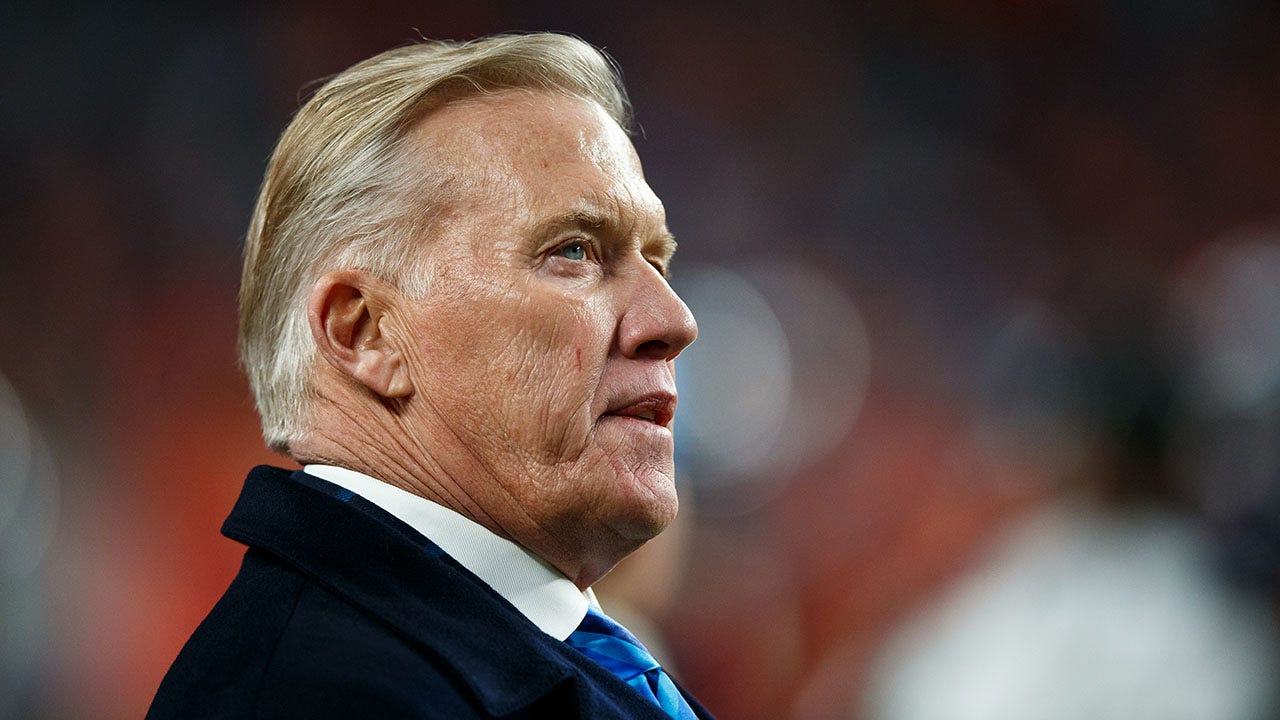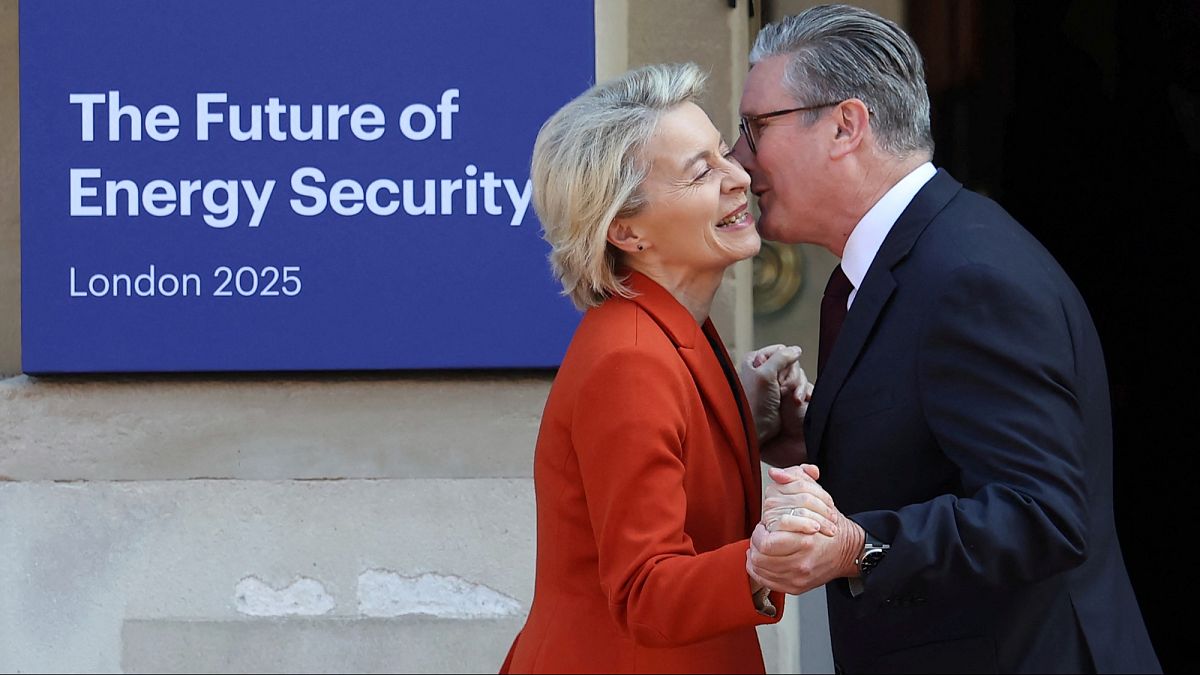EU member states are hoping negotiations on a security pact with the UK will continue apace so that it can be the main deliverable when leaders gather for a summit on 19 May, multiple sources told Euronews on Wednesday.
Striking a security pact would allow Britain to take part in joint procurement for military capabilities alongside EU member states, and enable the bloc’s countries to procure British-made military equipment through a new €150 billion European instrument to ramp up defence spending.
An EU diplomat, speaking on condition of anonymity, told Euronews after a regular meeting of EU ambassadors on Wednesday in which the upcoming summit was discussed that “we’re all hoping a security and defence partnership can be signed”.
“In principle, we want to deal with (the) defence industrial base within the European Union, however the need is so urgent for Ukraine we need to partner up with other countries,” the source added. “Certain conditions will have to be met but all of this can be spelt out in the separate procurement agreement.”
Talks between Brussels and London for a security and defence partnership are ongoing with EU ambassadors scheduled to discuss a first draft put together by the Commission’s External Action Service next week.
A security and defence partnership is now expected to be one of three elements set to come out of the summit which will be hosted by British Prime Minister Keir Starmer and attended by European Council President Antonio Costa, European Commission chief Ursula von der Leyen, and Kaja Kallas, the EU’s top diplomat whose service is leading the security partnership talks for the bloc.
€150 billion
The other two documents include a “Geopolitical Preamble” in which they will announce a new “strategic partnership”; and a “Common Understanding” that is meant to “define the parameters of the evolving relationship between the EU and UK on a number of bilateral issues” including fishing rights and phytosanitary rules, an EU official told Euronews on Wednesday.
Both Brussels and London have said in recent weeks that striking such a pact is a priority given the tumultuous global geopolitical situation and the ambition shared by both sides of the Channel to significantly ramp up defence spending to be able to defend themselves, alone if needed, against potential threats.
London has announced it plans to up defence spending to 2.5% of GDP by 2027 while Brussels has put forward a ‘Readiness 2030’ plan to boost defence investment across the bloc, which includes a new instrument, dubbed SAFE, that will see the Commission loan some €150 billion it plans to raise on the market to member states.
But this money comes with strings attached, namely a so-called European preference that largely excludes countries and manufacturers that are not part of the bloc, its single market, or which already have a security pact with the EU. This is the case of the UK and Turkiye, while Norway and Iceland can already fully participate.
Some member states, however, had emitted reservations about forging ahead with a security pact with the UK without first resolving outstanding Brexit issues including citizens’ rights, youth mobility, phytosanitary rules, and fishing, for which the current rules will expire in June 2026.
‘Still work to be done’
The “Common Understanding” could go some way to assuage those concerns, with the EU official quoted above stressing that “all the summit outcomes are meant to be linked together”.
Another EU diplomat, also speaking on condition of anonymity, told Euronews on Wednesday that “on fisheries, the atmosphere seems constructive, but the parameters still need to be stabilised with our British partners”.
“There is still work to be done to finalise preparations for the summit, including the Security and Defence Partnership” over the coming three weeks, they added.
A third diplomat told Euronews that the “true level of ambition” remains to be seen and the substantive details are being negotiated, but nonetheless described a security pact as a “big part and area of positive cooperation that we see ourselves having with the UK after a difficult few years from Brexit”.
The current “changing security dynamic calls for stronger partnerships, and reliable partners which Europe really needs at the moment”, they also said.
The UK and EU member states are aligned on geopolitical positions, including on the need to continue supporting Ukraine and putting pressure on Russia. France and Britain are, for instance, spearheading a so-called “coalition of the willing” to provide Kyiv with security guarantees in the event of a peace deal with Moscow.
Yet, the diplomat cautioned that “there are domestic political considerations for the UK prime minister”.
“There are local elections in the UK, and there’s still a couple of weeks to go before the summit, and I think everyone is conscious of how it all lands,” they said.



